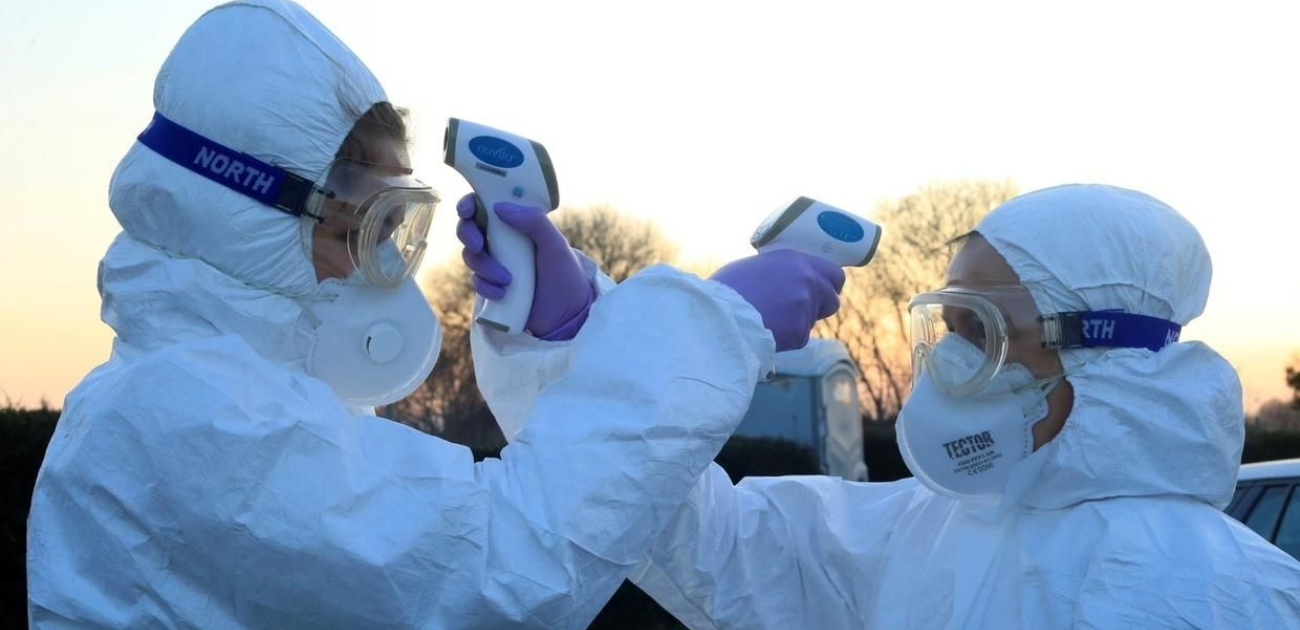Red Zone Italy
The Italian Prime Minister, on March 9, 2020, declared the entire Italian territory a "red zone". In a nutshell, with this decision, the Italian government has requested everyone to stay in their homes, until April 3, 2020, except for i) proven working needs, ii) situations of need or iii) health reasons (obviously, coronavirus sufferers and those who have undergone quarantine measures must remain at home and cannot go out, even for the aforementioned reasons) and employers have been strongly recommended to take all the necessary steps to allow smartworking.
In addition, with the same measure, the Italian government ordered the suspension of all school activities of all levels and all cultural, sporting, recreational and entertainment activities and events, as well as the closure of places such as cinemas, pubs, theaters, museums etc., in order to avoid as much as possible the gathering of people and, therefore, the spread of the virus by direct contagion among individuals.
In addition, on March 11, 2020 the Italian government took further restrictive measures, suspending until March 23, 2020 also all retail commercial activities, except for the grocery stores and the basic necessities activities, allowing only the carrying out of the banking, financial and insurance services as well as the activities of the agricultural, livestock and agro-food processing sector, including the supply chains that supply goods and services.
Still, at the moment, the activities of the Courts of all levels have also been suspended throughout the national territory and until March 23, 2020; this suspension applies to the hearings relating to proceedings considered non-urgent and to the terms for carrying out procedural obligations, except for those proceedings and those activities in urgent matters (such as, for example, hearings relating to proceedings of the juvenile court, those relating to the validation of arrest or against persons detained, etc.).
In other words, except for carrying out the activities considered relevant - that is, allowing people to go to their workplace and allowing the movement of goods - and for carrying out urgent activities (such as the supply of food and medicines) - the Italian government has decided to stop, throughout the national territory, all the activities deemed unnecessary for the purposes of survival and to allow those deemed necessary, with the appropriate hygienic-sanitary precautions, in order to control and limit the spread of the virus.
How did this decision come about?
To date, according to the data of the Italian Civil Protection and the Ministry of Health, the number of total infected people amounts to 15,113, of which 1258 have recovered and 1,016 have died. Among the 12,839 currently positive: 5,036 are in home isolation, 6,650 are hospitalized with symptoms and 1,153 are in intensive care.
According to WHO data, therefore, Italy is currently the second country in the world by number of infected people and by the number of deaths in the world.
In short, the history of the coronavirus in Italy began on January 29, 2020, when a couple of Chinese tourists were hospitalized in isolation in the Spallanzani Institute and the following day the infection by that pathogen was certified (on February 26, the two Chinese tourists were declared healed).
The first case of secondary transmission occurred instead in Codogno, Municipality of Lombardy in the province of Lodi (south of Milan), on February 18, 2020, where the contagion unfortunately exploded due to the chain of causes that prevented the immediate diagnosis of the disease on the so-called "Patient zero" (similarity of the coronavirus with other lung infections, failure to communicate with people attended, pedantic respect for medical protocols, etc.).
On February 23, the Italian government established the above mentioned "red-zone" measures only in the contagion area and, at the same time, in the surrounding areas, including Milan, the closure of all schools of all levels.
Subsequently, the Prime Minister issued other measures, increasing from time to time the measures aimed at containing coronavirus and, in summary, following the spread of coronavirus in particular in the central regions of Northern Italy, the red zone measures were first extended to the entire Lombardy and to some provinces of Piedmont, Veneto and Emilia Romagna and, subsequently, all of Italy.
Ultimately, at the moment in Italy, as explicitly reported by the Government, goods continue to be able to circulate freely on the national territory, while healthy people can move on the condition that they can proven working reason, which can be self-certified, or necessity reasons (such as go food shopping) or health reasons.
But how is the Italy-system responding to the coronavirus?
Large companies immediately activated internal crisis committees for emergency management - also in implementation of the regulations on workplace safety - and for the protection of the health of their employees, facilitating smartworking, where possible, and taking measures to ensure safety standards (installation of workstations with disinfectants, making masks, gloves, etc. available), all even before the government takes the "red zone" measures. Interconsulting Studio Associato has also taken similar measures. The transition in this sense was more difficult for small companies, less prepared both from an IT point of view and from an organizational point of view to face such a overrun health emergency.
Even the reactions of the Italians were characterized by big differences. There were some who immediately grasped the rational of the government's measures and immediately tried to limit their travel to the strictly necessary. For others it was, unfortunately, the contrary: the ski slopes were overcrowded until the government closed them; at the time of taking the first measures, in the regions of Northern Italy there was a rush to shop by many citizens, for the terror - completely unfounded - of remaining without food supplies; subsequently, when the government extended the "red zone" to all of Lombardy and other provinces of Northern Italy, trains and planes were stormed - literally - by those who resided in other regions of Italy (reprehensible behavior, according to the writer, both from the hygienic-sanitary point of view and for the risk of the spread of the infection also into the regions of Central and Southern Italy, until then not so affected by the coronavirus. Ironically, the run had been completely useless, since two days after the "red zone" was extended to all of Italy ...); again, when the government extended the "red zone" to all of Italy, there was again an assault on supermarkets, even if the government had guaranteed that they would have remained open. Evidently, the Italians are particularly sensitive on the issue of nourishment, if even the Italian Prime Minister, on the evening of March 11, announcing the tightening of the measures against the coronavirus, after thanking the Italians for the effort put in place, said "No rush, be careful, no rush is needed so to buy food in supermarkets ...".
In these days we are witnessing considerable efforts by the national health structures and by doctors and nurses, committed to the front line for the assistance of the sick and infected with coronavirus and the involvement in this emergency also of prepared external volunteer operators. The health facilities themselves are and have been severely tested by the emergency, both because of the large number of people infected at the same time and because of the percentage of people for whom hospitalization was necessary in the intensive care units that, despite having been increased, struggle to give assistance to all.
In this context, on the other hand, there are real solidarity tenders by citizens and businesses to support the effort of the national health system, for example with fundraisers for hospitals and associations of health professionals.
Not only.
Companies and associations have made free services available to Italian citizens, joining the "AGID digital solidarity" project, such as, for example, free internet surfing until the end of March, free platforms for smartworking, free cloud services, free subscriptions to online magazines, free training webinars etc. The participation was so numerous that, on the Government website, you can read that "due to the great response to the initiative ... and the hundreds of offers that are coming ... the preliminary investigation and publication may take a few days ...".
In conclusion, according to the writer, staying at home does not mean being isolated or unable to work, but it means contributing, each in his own small way, to promoting the effort of those who are struggling to avoid the spread of the infection.
I hope that the experience we are living in Italy will be of help to the countries which, fortunately, are now at the beginning of the coronavirus emergency.
We are now facing a very critical period which I wish everyone to be able to avoid but, if you find yourself facing it, please know that it is possible to do it, with a small sacrifice, for the good of the whole community.
Interconsulting Studio Associato, its members, associates and collaborators are obviously available to share ideas and experiences and to support all Pragma members even in these difficult days, indeed, even more so in these difficult days.
Ps. We briefly recall the rules of conduct to follow to avoid the contagion and the spread of coronavirus, suggested by the Ministry of Health:
- Wash your hands with soap and water or alcohol-based gel often
- Avoid close contact with people suffering from acute respiratory infections
- Do not touch your eyes, nose and mouth with your hands
- Cover your mouth and nose with disposable tissues when you sneeze or cough. If you don't have a handkerchief, use your elbow crease
- Do not take antiviral drugs or antibiotics without a doctor's prescription
- Clean the surfaces with chlorine or alcohol based disinfectants
- Use the mask only if you suspect that you are sick or if you care for sick people
- MADE IN CHINA products and parcels received from China are not dangerous
- Pets do not spread the new coronavirus
- If in doubt, do not go to the emergency room, call your family doctor and follow his instructions.
Do you want more information?
 Matteo Centuori
Matteo CentuoriAvvocato con esperienza in diritto societario, contenzioso civile e societario e contrattualistica, co-autore di articoli su riviste specializzate e relatore in convegni e corsi.
